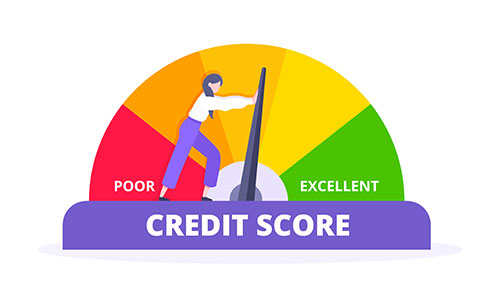
The average American holds more than $92,000 in debt, according to a study by ExperianTM. From mortgages to credit cards to student loans, life is full of things that cost money. A new year tends to bring a fresh perspective that allows us to focus on what’s next, and our debt is a great place to explore.
Face your debt
It’s certainly not dinner party conversation, but debt is a part of our lives. And chances are most people you hang out with are in the same boat. If you haven’t already, it’s time to be honest about your current situation. Open up Microsoft Excel sheet or go the old-fashioned route with a piece of paper and write it all down. Be sure to note the total of what you owe, what your monthly payments are and how much interest you’re paying. Getting a full picture of your debt can help you focus your energy on the best ways to tackle it.

Examine your budget
Chances are you already have a pretty slick budget, complete with how much extra you have each month to do the things you really want. If you aren’t on a set budget, this is a key first step to tackling debt. Pull up the last two to three months of your bank account history and record where your money is going. How much are you spending on coffee runs or takeout? There’s no shame. It’s simply about getting a realistic picture of where your money is going. Then make a budget. Here’s a four-step process:
- STEP 1: List all sources of income on your spreadsheet, particularly what you take home after taxes.
- STEP 2: Jot down your fixed monthly expenses including your mortgage payment/rent, car payments, student loan payments, credit cards, utilities, etc.
- STEP 3: Note variable expenses like groceries and gas.
- STEP 4: Finally, list the extras including entertainment, gym memberships, travel, etc.
Now you have a full picture of your income compared to your spending. Are there areas you can trim to free up money to pay a little more each month on your debts? This is a sure way to make a big difference on what you owe.
Snowball or avalanche?
There are two common terms when it comes to paying off debt: “debt snowball” and “debt avalanche.” The “debt snowball” method takes the approach of paying off your smallest debts first and making the minimum payments on your other debts. This means you are methodically getting the smaller debt out of the way and then going after the larger debt until it’s all paid off. This strategy can give you quick wins, which will feel good and help keep you motivated.
Alternatively, the “debt avalanche” method has you tackling your highest interest rate debt first. Typically, this would be your credit cards. Getting those high-interest balances down is a great strategy for those who want to save on interest payments, while reducing the time it takes to pay off the debt. It takes a commitment to this strategy for it to be successful. That means no “off months” of paying just the minimum. Go for the gold, as they say!
Picking between the two approaches comes down to how you will feel about paying off your debt. Choose the strategy that will keep you motivated and moving forward. Do you despise paying interest? Go for the “debt avalanche.” Love seeing progress quickly? Try the “debt snowball” method. Consider both carefully and then commit.

Pump up your credit score
It’s a simple formula: when your debt-to-income ratio drops, your credit score goes up. Just keep in mind, while you’re paying extra on debts and driving them down, your credit score will only improve if you continue to pay the minimum on your other debts on time each month.
And give yourself credit by getting credit for all your on-time payments. For example, Experian has a free program called Experian Boost. You link your bank accounts to the credit bureau, and each time you pay a bill on time (even entertainment services like Netflix and Hulu), your credit score gets a little boost.
A path to debt freedom
There is power in having a plan. And the fact that you’re reading about it means you’re ready to get serious. You’re doing the hard work now: facing your debt. No matter how you tackle it, your future self will thank you for prioritizing it.What's your Solarity story?
We're on a mission to tell the stories of our members and how they are living their best lives. Do you have a Solarity story to share?
